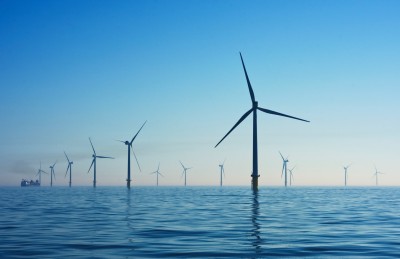The London Pensions Fund Authority (LPFA), a £7.7 billion Local Government Pension Scheme Fund, is increasing monitoring and engagement activity around specific social, governance and environmental issues in its portfolio following the publication of their new Responsible Investment (RI) Policy.

The policy identifies four pillars of importance to the LPFA: Climate Change, Natural Capital, the Just Transition and Good Governance. Within those areas there are six global themes identified as posing the greatest risks and opportunities to the Fund. They are:
- Renewable energy generation and distribution
- The Fund will work to support the development and distribution of renewable energy solutions.
- Pollution and the circular economy
- The Fund will encourage action to reduce pollution and increase circularity in the economic activities of their investments.
- Fair pay
- The Fund will promote better practices of pay for workers and management across their investments.
- Diversity, equity and inclusion
- The Fund will promote the importance of DEI across their investments.
- Accountability and oversight
- The Fund will encourage high standards of oversight and accountability in all their investments.
- Cyber security and responsible technology developments
- The Fund will encourage their investments to identify and manage risks and opportunities relating to cybersecurity and responsible technology developments.
CEO of the LPFA, Robert Branagh, said: “Being a responsible investor is all about managing the risks and opportunities facing our Fund so that we can continue to pay our members their pensions when they retire. Our new RI policy formally identifies the main environmental, social and governance risks – and investment opportunities – that we face today and what might emerge in the future. A robust approach to RI is good, effective risk management and part of being a well-run Fund.”
As part of its commitment to RI and good risk management, the Fund appointed Paul Hewitt as Responsible Investment Manager in 2022 to develop a new approach and framework and ensure that environmental, social and governance considerations are fully embedded in investment decision-making and stewardship.
According to Mr Hewitt, “The LPFA and our investment managers were already doing great work in RI and particularly around climate change where we have had a policy in place since 2016. This new policy, though, gives us greater clarity and direction on what sustainability issues are most important to us and when and how we affect positive change together”
Commenting on the input of LPFA members to the development of the policy, Paul continued: “We pride ourselves on being a well-run fund and key components of that are transparency and collaboration. While the policy has emerged from the main risks facing the fund, it was important for us to also take stock of members’ views which we did through our member survey in 2023. In doing so, we learned from over 3,000 members who responded to our survey that they identify more strongly with social issues than environmental ones, for example, so we’re pleased that our RI policy includes in its priorities fair pay and diversity, equity and inclusion.”
The policy also reaffirmed the Fund’s commitment to collaborating with other like-minded organisations to drive change. In 2023, the LPFA announced its support for the CDP’s Science-based targets campaign and ShareAction’s oil and gas bank financing campaign.
The LPFA Responsible Investment Policy is available now.


